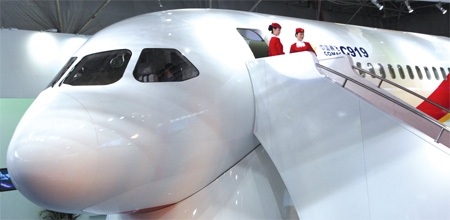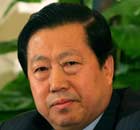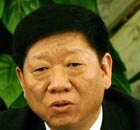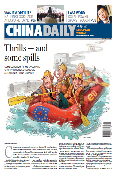Indian Bureaucracy a legacy of British Colonialism
Updated: 2010-11-08 10:51
By Binod Singh (chinadaily.com.cn)
The bureaucrats in India are called "Babu" in Hindi which also means father in the same language. They enjoy a father-like status across the country since the colonial era. In the independent India, they are credited with holding back the Indian economy for more than four decades by curtailing the entrepreneurial spirit of many Indians.
In fact India has been performing very poor until recently when it comes to economic freedom. People do enjoy the freedom to speak but not to start their own business. Politicians come and go after five years or so with few exceptions but a "Babu" retires after his full term and no one can fire him without running a trial at one of the lengthiest judicial court of India where one case may take 20 years to be disposed.
When China was liberated in 1949 it almost got rid of the old system and totally created a new bureaucracy from top to bottom. As the famous saying of chairman Mao goes: xian da sao fang jian. zai qing ke". Clean the house before inviting guests.
But the case was just the opposite in India. The country inherited an administration which was created by its British rulers to serve the interest of their Queen and the British parliament. The whole set of Indian Civil Services was designed and trained by the British with the aim of extracting maximum revenues from the local Indians. The same was the case with the Indian army which was trained to sing the song "Long live the Queen".
India's red-tapism started under the colonial rule when then British government held competitive examination in London to select some of the smart Indians to work as servants of British government. Now after 63 years of Indian independence, the country's native rulers have not much tempered with the colonial legacy gifted to them which was known for its "rule of law" and centralized administration.
The only reform we have seen is some positive discrimination against the upper caste candidates (mainly Brahmins) who were supposed to be promoted by the Colonial government as well as the Congress party under Nehru and Indira.
But still some of the top bureaucrats in India hail from top class Brahmin families who seem to inherit the post as their natural right. The 'Menon' family originating from the southern state of Kerala is one of the prime examples of family legacy in the officialdom of New Delhi.
Unlike China, the one thing good about India's bureaucrats is that there is no foreign worship when it comes to foreign nationals. They are equally good at curtailing foreign investment coming into the country.
A project may take years to get approval in India which would have been done in a month in China. In some cases the concerned minister (local or central) has to be approached to get the project approved. It was only recent reforms that some direct windows facilities were created for the foreign investors just to avoid the bureaucratic hackles.
The point we take back home is that it is difficult to overpass an Indian bureaucrat. After all these bureaucrats are selected by a very competitive examination process which has no parallel in the world. In fact some say that it was implemented by the British in India on the pattern of Chinese Imperial Examination to choose the Mandarin scholars known as "keJu zhidu".
Paper's Digest

Chinese jet takes on Big 2
First large commercial plane set to ride on demand for aircraft as economy grows.
Super-CPU only for domestic eyes
Specials

Gaining ground
Doing business in china for westerners has come a long way, Peter batey says.

Safeguarding environment a priority
China continues to face mounting pressure to curb environmental degradation, despite progress in reducing pollution over the last five years, the environmental protection minister warned.

Employment to remain a continuing challenge
China's top labor official said the country will face a tough employment situation in the next five years.
